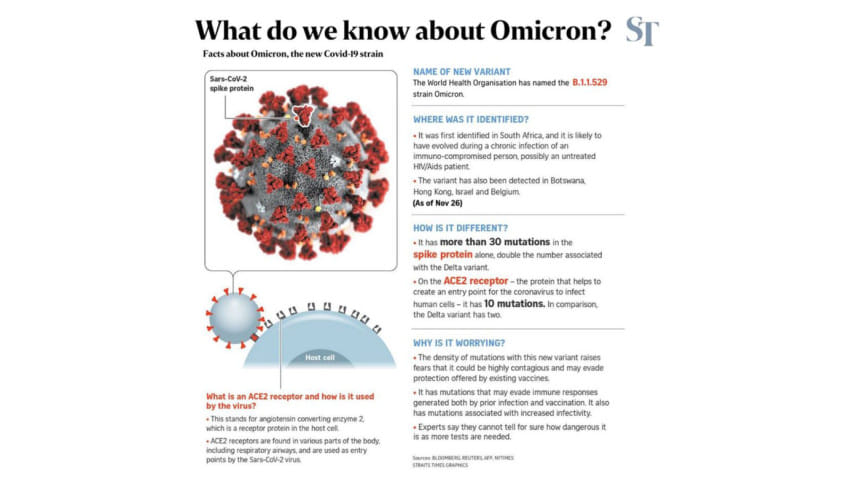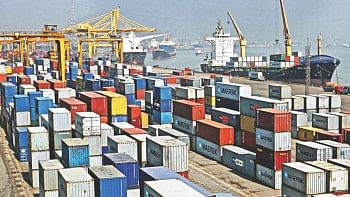What we know about Omicron, the latest Covid variant 'of concern'

The World Health Organization (WHO) has declared a new coronavirus variant -- detected in South Africa -- to be "of concern" and named it Omicron.
Here's what we know so far:
It was first detected in South Africa and is concerning because it has a large number of mutations, which can impact how the virus behaves.
Early signs suggest that the variant has rapidly increased in Gauteng -- the country's most populated province with around 15 million people -- and may already be present in South Africa's eight other provinces.
The country's National Institute for Communicable Diseases said on Thursday (November 25) that it had detected 22 confirmed cases of the variant, with more suspected cases still being sequenced. Scientists estimate that the variant could account for 90 per cent of the Covid-19 cases in Gauteng.
South Africa saw a total of 2,465 cases on Thursday.
Cases have been detected in neighbouring Botswana and as far away as Hong Kong, where a 36-year-old man, who had flown from South Africa on November 11, tested positive for the virus two days later while still in quarantine.
He subsequently infected another 62-year-old man staying in a neighbouring room in the same hotel.
The first man had reportedly used a face mask with a valve, which does not filter the air that is breathed out. Virus particles then spread into the hotel corridor.
One big concern is that the new variant might reduce vaccine effectiveness because of its large number of mutations.
Most vaccines focus on "teaching" the body to generate antibodies that neutralise the virus' spike protein, which latches on to human cells. But many of the new variant's mutations are in regions of the spike protein that antibodies recognise, raising concern that this may impact vaccine efficacy.
The variant has 32 mutations in its spike protein -- about double the number associated with the Delta variant.
Associate Professor Penny Moore, a virologist at the University of Witwatersrand in Johannesburg, South Africa, said computer modelling suggested the new variant may be able to dodge another part of the immune response conferred by T-cells.
Another issue is that the variant appears to spread very quickly. South African virologist Tulio de Oliveira noted that the variant now "dominates all infections" in the country after less than two weeks. The Delta strain had been the dominant variant until the emergence of the new variant.
It is unclear whether the new variant is associated with more severe disease, and scientific studies are ongoing.
The World Health Organization's (WHO) technical lead on Covid-19, Dr Maria Van Kerkhove, said: "We don't know very much about this yet. What we do know is that this variant has a large number of mutations. And the concern is that when you have so many mutations, it can have an impact on how the virus behaves."
"We need to understand that the more this virus circulates, the more opportunities this virus has to change, and the more mutations we will see," Dr Van Kerkhove said, stressing the importance of driving transmission down.
Dr Michael Ryan, who is executive director of the WHO's Health Emergencies Programme, cautioned against "knee-jerk responses" and noted that the new variant has come to attention because South Africa has good surveillance systems in place and is sharing information with the rest of the world.
Copyright: The Straits Times/Asia News Network

 For all latest news, follow The Daily Star's Google News channel.
For all latest news, follow The Daily Star's Google News channel. 



Comments